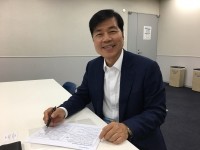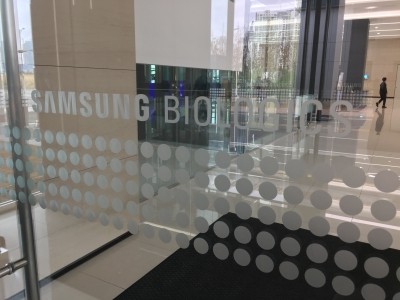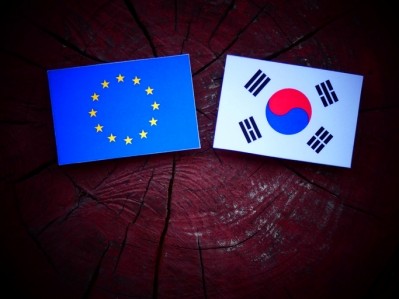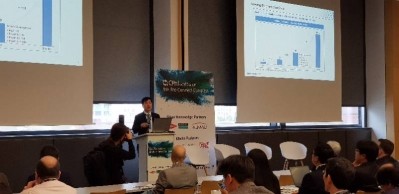Exclusive interview with CEO TH Kim
Samsung Biologics: Reducing COGS could double mammalian CMO use to 50%
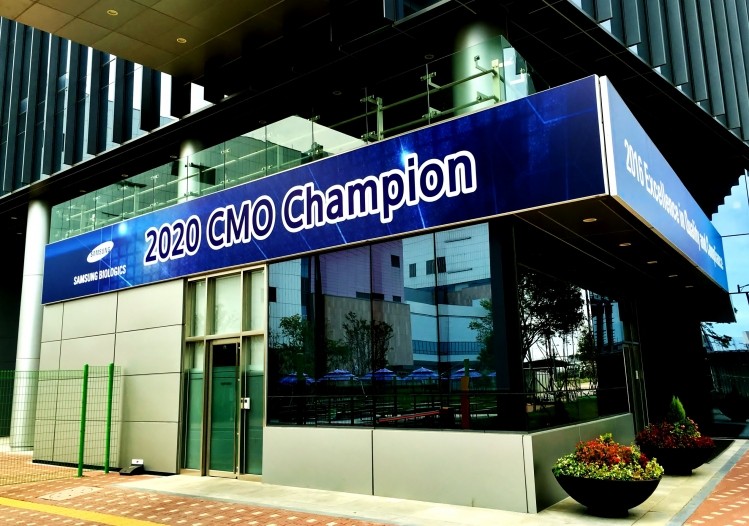
By next year, Samsung Biologics will become the contract manufacturing organisation (CMO) with the largest mammalian cell culture capability when a third plant at its Songdo, South Korea site adds 12 by 15,000L of stainless steel bioreactor capacity.
With a total of over 360,000L the firm will have come a long way in just seven years, challenging the established large-scale third-party manufacturers Lonza and Boehringer-Ingelheim.
We sat down with the man who conceived Samsung Biologics in 2011, CEO TH Kim, who told us his company’s rapid accomplishment in the space came down to Samsung’s experience in the semiconductor industry, an industry with an outsourcing model he is eager to emulate.
Double CMO utilisation
“[Biomanufacturing capacity demand] is about four million litres at this moment globally, and the sum of CMO capacity is around one million litres. Currently CMOs only cover about 25% and my ambition is the CMO portion can grow up to 50%,” he told Biopharma-Reporter during the Interphex Japan event last month.
“Our vision is to become a company like Taiwan Semiconductor Manufacturing Company [TSMC]. This company was born 30 years ago. We would call it a CMO, they call it foundry, but it’s exactly the same concept: originally electronic companies made semiconductor internally but they realised it is more convenient to outsource manufacture, and TSMC began supplying semiconductors of good quality at a reduced price. Now the foundry industry is covering 50% of the semiconductor needs in the industry.”
Driving down outsourcing prices
CMOs are already a necessity for biotech and small firms unable to build their own facilities due to financial reasons. But to push CMO utilisation up to that 50% level it is necessary to lure Big Pharma away from in-house production by making commercial outsourcing a cost effective option, Kim said.
Currently Big Pharma uses CMOs for around 20-30% of its mammalian manufacturing needs; to provide flexibility, to quickly up volume due to unpredicted product demand, or to add product security through a second production site.
“Our operational costs are dramatically smaller than not only our competitors but also Big Pharma companies. Even if we add some margin, our service price including margin will be even smaller than in-house cost of goods of Big Pharma,” Kim said.
“From a Big Pharma viewpoint there is then no longer a need to build their own plants because it’s cheaper to outsource, through savings in CAPEX and a minimised risk of investment. That’s my vision, and I saw the same case in semiconductor industry.”
Samsung Biologics has been successful in winning contracts from the likes of Roche and Bristol-Myers Squibb but according to Kim it is currently working with another seven customers on over ten products for orders totalling $3.2bn.
Concurrent processing
Kim told us Samsung Biologics could offer reduced prices without scrimping on quality due to using concurrent processing techniques in facility construction.
By executing concurrently activities such as the engineering, procurement, construction and validation (EPCV) of the bioreactors with all other EPCV activities related to building construction, process equipment, utilities and HVAC, Samsung Biologics brought its second plant – a 152,000L which opened last year – from design to GMP ready in 29 months.
“Samsung can build a plant with concurrent processing technologies saving 40% of construction lead time, compared with a competitor building a plant step by step,” Kim said.
Concurrent processing is already a staple in industries which have cost of goods that account for a large percentage of sales revenue – the semiconductor industry, for example – but has been overlooked by biopharma as a cost-saving/profit-raising opportunity.
“I know the manufacturing covers less than 10% of sales revenue [in biopharma], but it is still valuable. If I collect manufacturing orders from multiple companies and build a big plant having economies of scale I can dramatically reduce cost of goods. So my ambition is to compete against CMOs like Boehringer-Ingelheim, but my challenge is to compete against in-house Biopharma companies.”
A further advantage is Samsung Biologics is uniquely placed in the industry in its ability to operate a concurrent processing model, thanks to its parent company’s experience in the semiconductor and petrochemical space.
Samsung has built 23 semiconductor plants and spent over $100bn doing it, and thus with such experience of technologies and best practice “Samsung is the only CMO who can build 362,000L in seven years,” Kim said.
